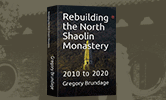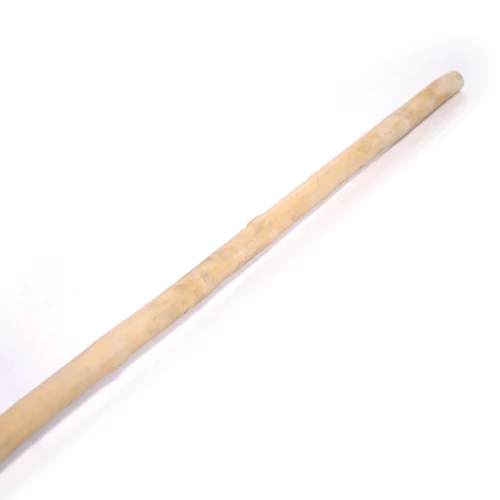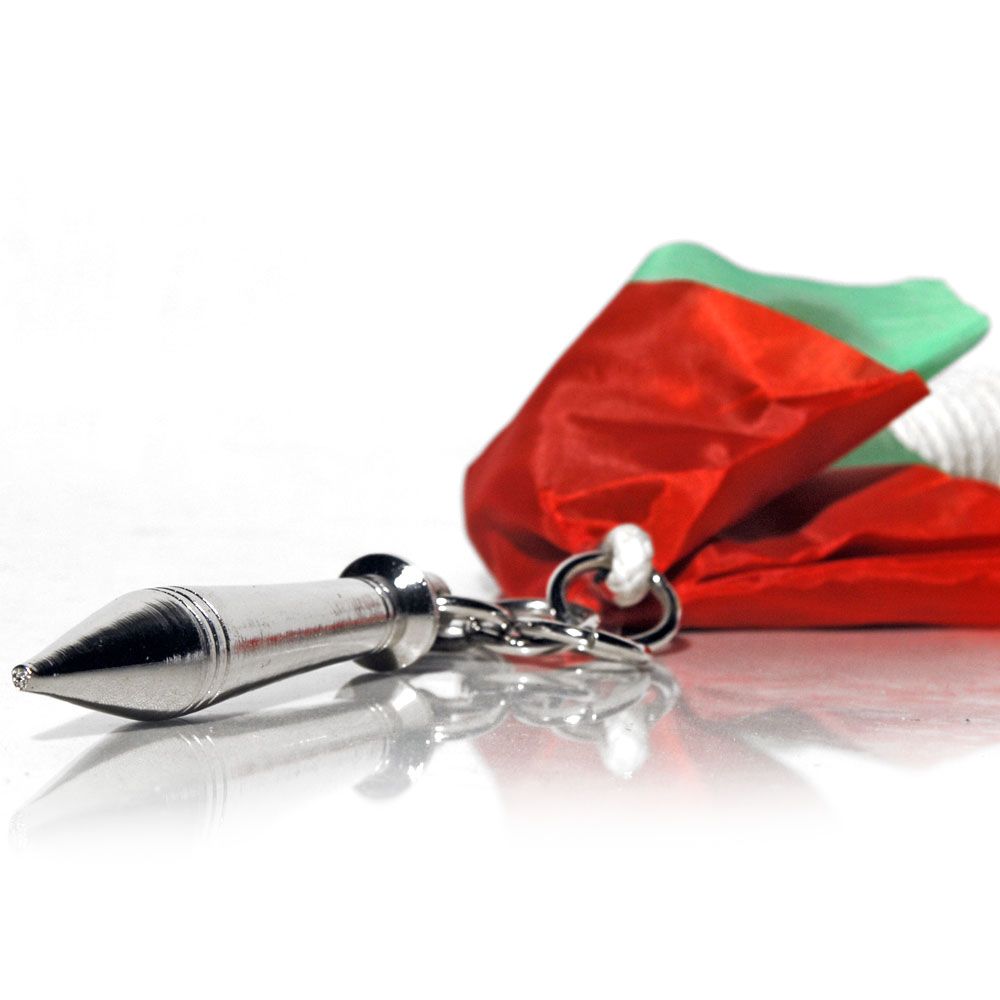By Dianne Naughton
 The End
The End
Master Pan Qing Fu's students run towards him like lost puppies. "They were my family," he said. Sometimes he can't talk about them because the subject is so full of emotion. "I gave them everything. They had a hard, poor life with no future and because of martial arts they have traveled the world. When I left China, I had to leave them behind."
Finally he could see four of them again. The teens he remembers are now young adults.
The Beginning
The international tournament on Baltimore brought together martial artists and friends from 54 countries. The story begins at that tournament. Five years after he left mainland China, Master Pan, a Canadian citizen, carried the Canadian flag into the Baltimore arena. From his first appearance in the Omni hotel, he was greeted, sometimes swarmed, by excited fans eager to meet the "Iron Fist."
"Can I take a picture with you? Can I have your autograph?" asked excited admirers from every country. His business card quickly became a hot item since it features his magnetic eyes and incredible fist of iron. Everyone knows and respects Master Pan. "I received many gifts and vendors give me special prices," he commented one day. "I wanted to buy my friends lunch but when I asked for the bill, another table had already paid for the meal."
Center of Attention
For Master Pan, being in a competitive environment and the center of attention felt very natural. "When I was young, I practiced martial arts in the basement. I didn't want anyone to watch me," he recalls. His first sifu convinced him to enter a tournament, and reluctantly, the young Pan competed - and won! "I shocked everyone because I was just a little boy and I was very ferocious. They called me 'Little Tiger.'" He advanced to the next tournament and the next until he was competing at the top level. They immediately asked him to join the provincial martial arts team, and that began his amazing career.
Years later, on the other side of the world, Master Pan anxiously watched one of his Chinese students compete - Lang Ronybiao, whom Master Pan chose from the harsh, Chinese countryside. Lang Ronybiao shocked the audience with an amazing breakfall routine and later won the men's staff. "He used to wet the bed and now he's a world champion," said Master Pan with a chuckle.
After the Baltimore competition, China sent a seven member demonstration team to accompany their competitors. Together they performed throughout the United States for the next week. Of the seven, three were Lang Ronybiao's teammates from Master Pan's Tianjin team. Even though China has approximately forty professional martial arts troupes, the authorities chose almost half the participants from Master Pan's team.
Pan's resume reads like that of a fictitious character. Recognized as one of the four best professional martial arts teachers, the government repeatedly chose Maser Pan to instruct the police force and special forces. "I never thought about winning championships, visiting many countries or making movies," says Master Pan, who played himself in the critically acclaimed film Iron and Silk. "I just trained very hard and everything came out naturally."
After sixteen years of teaching at four universities, Master Pan became the Senior Chief Coach of he Hunan Professional Martial Arts team. His record of success in Hunan made him the natural choice when a coach was needed in Tianjin. "Hunan didn't want me to leave because they were in first place. They always finished last until the authorities sent me there to help. Hunan needed to have a good martial arts team because Chairman Mao was born in that province."
After moving to Tianjin, the authorities expected results quickly. They were not disappointed. Master Pan had a method for making students into champions.
Starting from Scratch
During the Cultural Revolution, the government declared martial arts illegal. When the country stabilized, Tianjin neglected to organize a professional martial arts troupe, and Master Pan needed to start from scratch. "I visited the amateur schools first," he explains. After two weeks of searching I almost bought a train ticket back to Hunan. I couldn't choose anyone, they were too low, so I decided to visit the countryside. People from the country can eat bitter. They are honest and trustworthy. This is a good foundation for a successful team."
Travelling to China's remote areas was not easy. He took the train until the tracks ended, bussed to the last stop, then walked a considerable distance to reach small communities, because, he notes, "I hate to waste people with good quality."
One boy, now second in command of the team, enjoys a rich lifestyle. His wealth is also enjoyed by his entire family. "Buses don't travel to his village. It is a very long walk. I saw this boy practicing. His techniques were very poor but he was good quality," Master Pan remembers.
Lang Ronybiao lived in a village described simply as being "under Tianjin" because it is so difficult to find. "I had to teach this boy everything, not just martial arts," says Master Pan, referring to the fact that some of the areas lack adequate education.
To complete the team, Master Pan arranged a selection station in a large gymnasium. "Hundreds of people came because professional martial artists have the best of everything. Anyone could try, experienced or not. If you know one hundred moves, then show me one hundred; if you know one movement, then show me one." He wasn't looking for martial arts knowledge; he was looking for "quality."
He quickly separated the applicants into three groups: low, middle and high. He then concentrated on the middle and high athletes. By performing simple movements, the students exposed their weaknesses and strengths. Master Pan "had to watch a lot of people, and some were difficult to judge."
Master Pan knows a phenomenal amount of styles and sometimes he chose people who suited a specific type of martial art. The students he saw in Baltimore are good examples. "Su Tung was so-so, but he had long arms and fingers. His flexibility was good, he was honest and he had big eyes so I taught him Eagle Claw style. This boy visits many countries and he is still very honest for me. I taught the three section staff to Huang Zi Chuen because I knew this boy would be nimble enough. Hou Tung Mei was short, fast and she had good control so I taught her a very special style. No other girls and most boys can't compare to her. She has been China's grand champion for many years. This year she won six gold medals and one silver."
Hours after assembling the audition, Master Pan had reduced the hundreds of potential students to twenty finalists. The last question: their feet. All candidates removed their socks and shoes to show Master Pan their feet. He checked for certain details, including the length of their heel, but the most important feature was their instep. A low instep can cause problems when an athlete attempts to jump high.
Every foot passed the inspection, giving Tianjin its first martial arts team in 35 years.
The Club
Master Pan comments that "location is very important. They gave my team space in Tianjin Sport City with the other competitive teams like [those training in] weightlifting and gymnastics. Tianjin is one of China's three largest cities. Everything was convenient but it was too noisy. Many things bothered my team. The students need to concentrate and train hard. So I insisted that we move to a small town."
When Master Pan moved to Tianjin, the government had greeted him with the keys to two houses; one was comfortably equipped with hot, spring water flowing to the bath. He lost these luxuries when the team moved, but the team's needs came first.
By riding a bus, a train and another bus, visitors arrived at Maser Pan's camp. The government had rented a hotel and a large gymnasium especially for the team. "It was like we were hiding - the same as when I taught the special forces. I was the leader and we trained like war. Danger and difficulties were the enemies. We overcame everything. Our goal was to make the impossible, possible."
He draped a banner outside the gym door stating: NO VISITORS, NO SPECTATORS.
The Hotel
"At the hotel, I took care of everything." Master Pan had as many as forty children between the ages of eight and sixteen under his wing, including five students who were nine years old. "I was the leader, master, father, mother and doctor," he states.
"Private chefs prepared our meals because professional martial arts teams receive the best food. We ate in the hotel's cafeteria with the other guests," who ate cheaper food. "My students were very young, and sometimes they needed to eat late at night, so I bought them different cans of food to keep in their rooms. Some kids liked seafood and some liked fruit. I always bought their favorites."
Making Champions Quickly
"I didn't copy anyone or follow any other team. I made my own road. I taught very special and dangerous techniques that no other team could do. I know how to teach the dangerous movements and make them safe so nobody got hurt," says Master Pan.
"The first year we trained every day, including weekends. At five a.m. I knocked on every door and waited. At five thirty everyone lined up in the hallway and we marched to the gym. We trained until seven-thirty." The breakfast break lasted until nine a.m.; then training until noon; then a lunch break lasting until two-thirty; and training again until five-thirty. Supper was served, and at seven o'clock it was back to training until at least ten that night.
"At midnight I made sure everyone was in bed," says Master Pan. "I never slept over five hours the first year, and many nights I could only sleep three hours. No talking. Training seriously," was the rule. "The only sounds in my club were from kicking, punching and weapons."
The team began each practice with foundation movements. This strengthened the basics and quickly warmed up the students. When they separated, each student strove to perfect his or her forms, all of which were choreographed by Master Pan. "Many teams must learn different styles from other coaches - not my team," he says. "I know more styles than anyone. This is very useful because everyone's quality is different. You must show their strong points - don't waste the students. Sometimes I asked them what style they wanted to learn. Sometimes I would teach a few students the same style then choose the best one."
He taught every member of the team the monkey staff because it's interesting and fun. "Every martial arts delegation must have a monkey staff stylist because the audience likes to watch their special movements. I knew that the person I gave this style to would be very famous. Lang Ronybiao and another student were very good, but I chose Lang because he has a good heart.
"When I teach, I demonstrate each movement many times so the students can imitate me. First I show them; then I tell them the meanings: why you do this, why you do that. Everyone changes very fast when they know the meanings. If you can't teach self-defense and you don't know the meanings of the movements, then don't teach martial arts," Master Pan states.
"When a student did a movement very well, I stopped the class and everyone watched. When students watch each other they become more confident. They must always watch each other for two reasons: to learn and to protect themselves from flying weapons.
"I knew that sometimes the students were sleepy, sore, hungry or scared but if they listened to me, everything would be better for them," explains Master Pan. "I reminded them, 'If you are scared, you must practice more. After, you will be free. You will control the dangerous movements instead of the danger always controlling you."
"A teacher must keep the students interested and determined. Ten hours in the gym and I never sat down. Some teachers read the paper - not me. I made class interesting. Every class they learned new techniques and improved the old ones. They improved quickly so their motivation increased."
Every member helped make decisions. If a problem arose, Master Pan held a meeting and expected the students' input. "Good ideas are very important and anyone can have a good idea," he says.
"At the end of the day we marched back to the hotel. They were so young, the government-issued jackets hung past their knees. I followed them and thought, 'I must teach better because they try very hard.'"
To give the officials more confidence, Master Pan arranged a special demonstration eighteen days after they began training. The students showed foundation movements and some showed advanced breakfall skills. Impressed with their progress, a top official said, "See, eighteen days with Master Pan is like many years with other teachers. Master Pan works extremely hard." The official promptly increased the team's supplies and appointed two security officers to make sure no one bothered them.
Spare Time
Master Pan explains that, "If you want a united team, you must control everything. The first Sunday after we started training, a few parents brought treats for their children. I was very angry. I told these people that some parents were too poor to visit. The other students would be homesick. 'When would your children eat their treats? In front of the others?' No way! This would make the whole team uncomfortable - not good for anyone. The parents agreed."
Instead, "Each week, if everything was going good, I bought movie tickets for the team. It was important for them to have fun because they trained hard and still continued with their school work."
Still, discipline was strictly enforced. "Once, some of he girls didn't train hard enough so I separated the tickets into two piles: boys' and girls'. After ripping the girls' tickets in half, I said, 'Boys, go to the movie; girls, go to the gym and train hard.'"
In fact, Master Pan's discipline even extended to the people of the town. "One afternoon at the theater, the film broke. My team waited quietly but everyone else was very loud," he recalls. "When they turned on the lights, I stood up and looked around. Everyone in the town knew my reputation, so when they saw me, the theater became very quiet."
Not all decisions were cut and dried, however. For example, Master Pan agonized over whether to let students go home for Chinese New Year holiday. "If they didn't go, the families would feel uncomfortable," he says. "It's like your Christmas; families must be together. I fought inside my head for many days...Okay, I allowed a three-day holiday, but everyone must train half a day, till noon, at the local gym."
Choosing Competitors
Three months after their first workout, his team competed in the annual professional martial arts tournament. Only twelve members from each team could compete. "Many teams are unfair. If the coach liked you, you went to the tournament. This method makes students stomp on each other. It separates the team. Instead, my team had a competition. The parents and other students helped judge," says Master Pan.
Six boys and six girls were chosen to enter the following events: empty hand, short weapons, long weapons, double weapons, flexible weapons, an optional form of any style, many different fighting events, and a group event of any style which had to involve at least six people, though Master Pan always included all 12 team members.
The remaining team members helped to prepare the competitors for the tournament. Master pan told them, "Correction helps you, and when you help each other, you become more united.
"We finished in fifth place and continued to train."
The Winners
Twelve months later, at the same competition, Pan's team finished first. What's more, Tianjin scored substantially higher in the team group event than did the second place Hunan team. Hunan - Pan's previous team - used the same double broadsword form that Pan had taught them two years earlier, while Tianjin stunned the audience with a four-minute breakfall routine that is still considered "one of the best forms," says Pan.
Their hard work brought sweet rewards. As team champions, they received a substantial bonus, with each member, including Pan, earning approximately $1000 each. They received additional bonuses by placing in the top three of the other categories, and the government allots thirty percent of this money to the team's coach. However, since the whole team helped correct the competitors, Master Pan insisted that thirty percent of the winnings, including his share, be divided amongst the others.
"I invited the parents to the club and every student gave some of the money to his or her mother. Many mothers cried. Most families were very poor and the children made more money than their parents."
Sharing the wealth united the team, changed the lifestyle of the parents, and made the parents support the children more. One father insisted that Pan keep all of the money his son won. He told the master, "You're not just his master, you're his father, his mother and baby sitter. You do everything; I don't have to anything." Master Pan refused the money, so the father spent the entire amount on an expensive suit for the master.
"After the tournament, the parents could visit any time. They always came to me first to ask if their child was respecting me enough. The parents liked to help me," comments Master Pan.
The Chinese government presented Pan's team with the "outstanding team" medal and introduced his method of success to the rest of the country. "The other coaches tried to copy me but their teams aren't united," notes Master Pan, "so it was difficult to be successful. Everyone was envious of my team."
Beginning Again
"Most teams take a break after the tournament - not mine," says Master Pan. "The week after is better than half a year, because the team saw other clubs; it opened everybody's mind. That week gave us a good foundation for the next tournament."
Master Pan's advice to his team is that "Everyone must start from zero. You won this tournament but now the tournament is over and you must start over; never enough."
Master Pan also started over, choosing to move to Canada and noting that in making this change he "lost a lot." His job in China had been considerably easier. His seasoned team has many champions and would require less individual attention. "My team still wins the fighting events with the same forms I taught them five years ago," he notes. "One team tried to learn a movement from my team but the student shattered his elbow bone. You must use the right methods."
His reason for leaving China is quite simple: "I want to make martial arts better." Travelling to other countries as the senior coach of several Chinese national martial arts delegations, he knew everyone likes Chinese martial arts. Frustrated, Master Pan states that "there aren't enough good teachers to teach. You must have the right direction; if you don't, you can practice for many years, waste a lot of time and never learn real martial arts." He sees many students who have the potential to fly, but they lack the opportunity.
In Baltimore, many people who knew of Master Pan through seeing Iron & Silk - often many times - sought him out, some driving through the night to see him and saying that it "showed the spirit of the martial arts." "Iron & Silk helped martial arts all over the world," says Master Pan. "People can imitate me and my teaching and see how to learn martial arts."
At the Baltimore tournament, Master Pan demonstrated long weapons fighting, broadsword and the "king of weapons" - the kwan-do - for the enthusiastic audience. Unlike in China, where the masters demonstrate after the tournament, the master's demonstration took place at the same time as the competition. "This is very difficult but I'm okay," Master Pan said with a smile. "My friends from China said I look younger than when I was in China and my martial arts has more power."
This is the key to real Chinese martial arts. After a certain number of years, most sports-oriented individuals must slow down or accept a lower standard of achievement. Some training must be stopped due to health problems. "Real martial arts are different," says Master Pan. "As you get older, your body gets younger." Now in his fortieth year of practice, his speed and power continue to increase, and his body becomes even more flexible with age.
The international tournament closed but the memories will last. "I met Cynthia Rothrock," he says, smiling. "She gave me two pictures." Even more exciting, "My students thanked me again for changing their lives. I met a lot of people and many countries wan to invite me to teach.
"I train hard every day. This is good for my students. If I'm better, I will teach better. I like to teach and I want to use magazines and movies to introduce martial arts because it's a very fast method. I have a lot to show."
Click here for Feature Articles from this issue and others published in
1996 .
About
Dianne Naughton :
Dianne Naughton is Master Pan's assistant and student.
![]() Print Friendly Version of This Article
Print Friendly Version of This Article
















